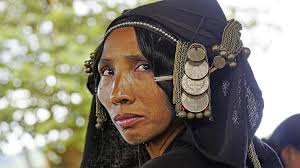Cambodia Returns Land to Indigenous Communities

- Country:
- Cambodia
In a surprise move, the Cambodian government has returned land that had been taken a decade ago from the indigenous communities for a Vietnamese company’s rubber plantation.
The Governor of Ratanakari, a northeastern province, asked the agricultural ministry to take out 64 areas from the land concessions. This includes forests, wetlands and burial grounds that belonged to the indigenous communities. Since the early 2000s, Cambodia has awarded large swathes of land as concessions to foreign companies for mines, power plants and farms to spur economic growth and alleviate poverty. The deals covered more than a tenth of the country’s surface area by 2012 have displaced more than 770,000 people.
Dam Chanty, the executive director of Highlanders Association, said the government’s decision represents an unprecedented recognition of indigenous land rights over business interests in Cambodia. However, Chanty said the communities still need compensation and help rehabilitating their land and waterways. The executive director of Equitable Cambodia, Eang Vuthy said a decade ago, the government gave about 19,000 hectares of land belonging to 12 indigenous villages to the Vietnamese rubber growers Hoang Anh Gia Lai (HAGL).
Vuthy said in 2014, the indigenous communities filed a complaint over serious environmental and sociel effects with the World Bank’s International Finance Corporation (IFC); it had invested in a fund that financed HAGL’s ventures in Cambodia and Laos. “It took more than three years of dialogue and negotiations, but this is an important issue that affects indigenous lives and their traditional rights over their land,” said Vuthy. “Foreign investors must be held accountable for any violations and harmful impacts when they ignore due process, including consulting with communities and gaining their consent.”
ALSO READ
Global Recovery Falters: New World Bank Report Highlights Deepening Economic Risks
Global Social Protection Gains and Gaps: World Bank Outlines Crisis-Driven Paths
Kyrgyz Republic Advances Tax Reform Amid Rising Compliance Costs, World Bank Reports
Barbados Receives $30M World Bank Loan to Strengthen Disaster Resilience










